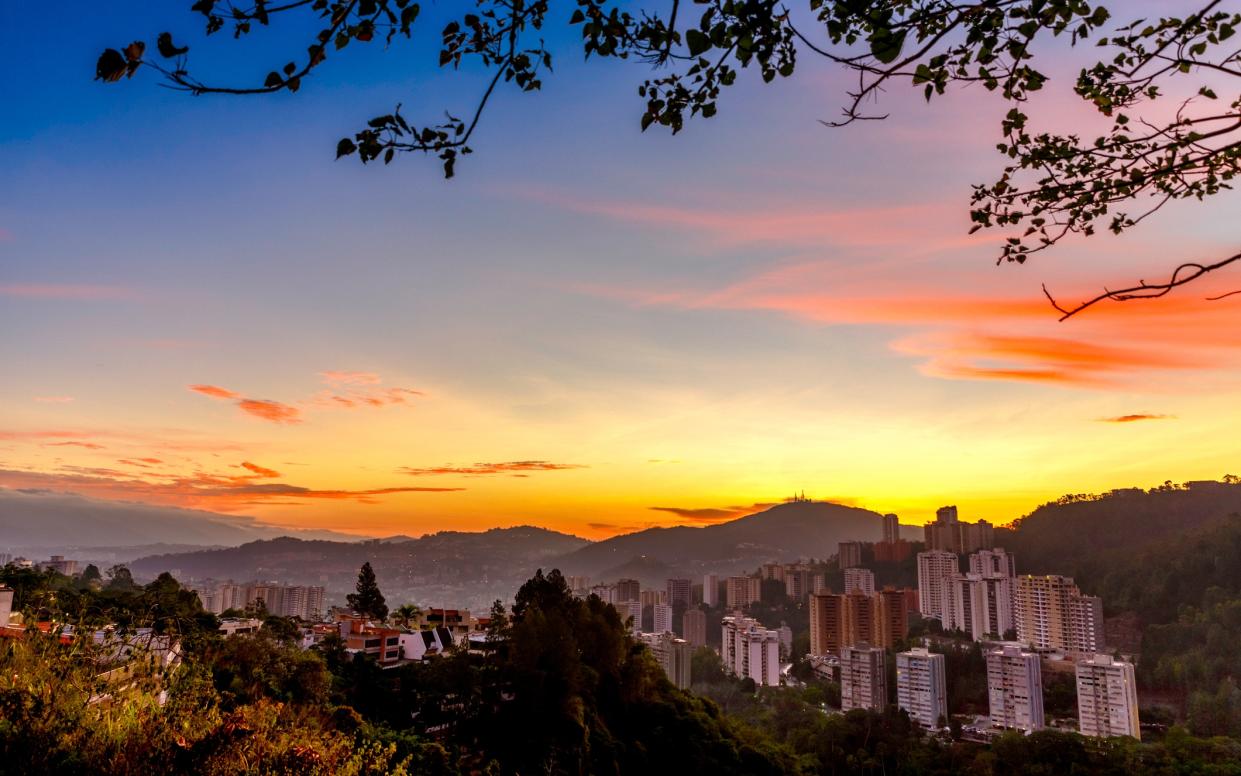Travellers in Venezuela can live like kings – but is it OK to take advantage of a country's economic woes?

“Tourism is the oil that will not run out,” proclaimed a tweet from Venezuela’s new minister of tourism, Marleny Contreras, following a cabinet reshuffle on June 14. It’s a slogan that she, and her recently re-elected president, Nicolas Maduro, continue to reiterate – banking on Angel Falls, the Caribbean Coast and Los Llanos National Park to lure international tourists back to this debt-stricken country.
Venezuela used to be one of the richest nations in South America, thanks to its massive oil reserves, but two decades of political corruption and civil unrest have turned the country into a social and economic basket case. Car-jackings are common, violent crime is at some of the highest levels on the planet and many of the hotels that soldier on have been looted of their sought-after toilet rolls and light bulbs. Why would any British tourist go against the current Foreign and Commonwealth Office advice to avoid the country entirely? The answer: to feel very, very rich.
When I travelled through Venezuela in 2015 the FCO advice was nowhere near as severe [Britons are currently urged to avoid all but essential travel to the country] and foreign tourists were excitedly exchanging US Dollars for the failing national currency, the Bolivar, on the black market. I recall ATMs offering seven Bolivars per Dollar, or a whopping 225 if bought from locals, desperate for hard currency. This seemed like an exchange rate that only a fool would turn down. My $100 in five $20 bills turned into a brown paper bag stuffed with 225,000 Bolivars, as opposed to a measly 700.

I could afford to buy huge rounds of drinks, take taxis everywhere and treat dates to expensive meals. Expats, who have probably all now fled, were at it too. Was our small, but significant, injection of foreign cash having a positive or negative impact on the Venezuelan economy? Looking back, the lavish sushi dinners and cocktails leave a particularly sour taste in my mouth, considering these days, Venezuelans without access to greenbacks can’t find medication for their children or put food on their tables.
President Maduro, meanwhile, blames “oligarchs” and black market rate-publishing websites such as Dollar Today for waging an “economic war” on the country. A war, he says, is being fought with the opposition and Washington. His opponents, however, would argue his financial policies are to blame.
Today’s black market rate hovers at around 3 million Bolivars to the Dollar, compared to the 80,000 offered by the Central Bank. Inflation has topped 25,000 per cent in the past 12 months alone, and by the time this article is published, that figure would have risen further still. Providing they can find the goods they need, Venezuelans head to the checkouts of supermarkets not knowing how many zeros will be added to the total that day. Some have resulted to trading meat instead of cash – nappies and contraceptives are commodities of the past.
The question is, as foreign tourists, where do we draw the line? Are most of us not attracted to certain parts of the world because we can get more for our money there? Trading one currency off against another in order to feel richer – for a short time, at least. We’ve all gloated about the price of a beer or a coffee while on our hols, but is taking advantage of an economy in turmoil in terrible taste, or simply savvy travelling? I only parted with the equivalent of £75, but in the three years since I left Venezuela, my conscience has grown murkier.
Fifteen major airlines have ceased flying to Caracas since 2014 and international tour operators have all but pulled the plug. President Maduro, meanwhile, says he want’s to turn Caracas’ crumbling Hotel Humboldt into “the first seven-star hotel in Venezuela.” It sounds lovely, in theory, but how he’s going to fund this project remains anyone’s guess. The Bolivar is beyond dead – destined for antique shops to sit beside Zimbabwean trillion Dollar and Yugoslav 500 billion Dinar bills. For tourists, they’re fun collectables – sadly, for Venezuelans, this joke currency remains a reality.

I departed with wads of (now worthless) notes that I simply couldn’t spend – and in hindsight I’m ashamed of my greedy cash grab. My injection of hard currency may have provided a quick fix to the sole person I exchanged with, and the taxi drivers I could afford to pay handsomely, but on a larger economic scale I suspect shady transactions like these served to further diminish trust in the ailing Bolivar. As tourists, it can be easy to feel disconnected from the places we visit, unobtrusively experiencing a country at arm’s length, through the viewfinders of our cameras – sometimes, however, our presence could be doing much more harm than good.



